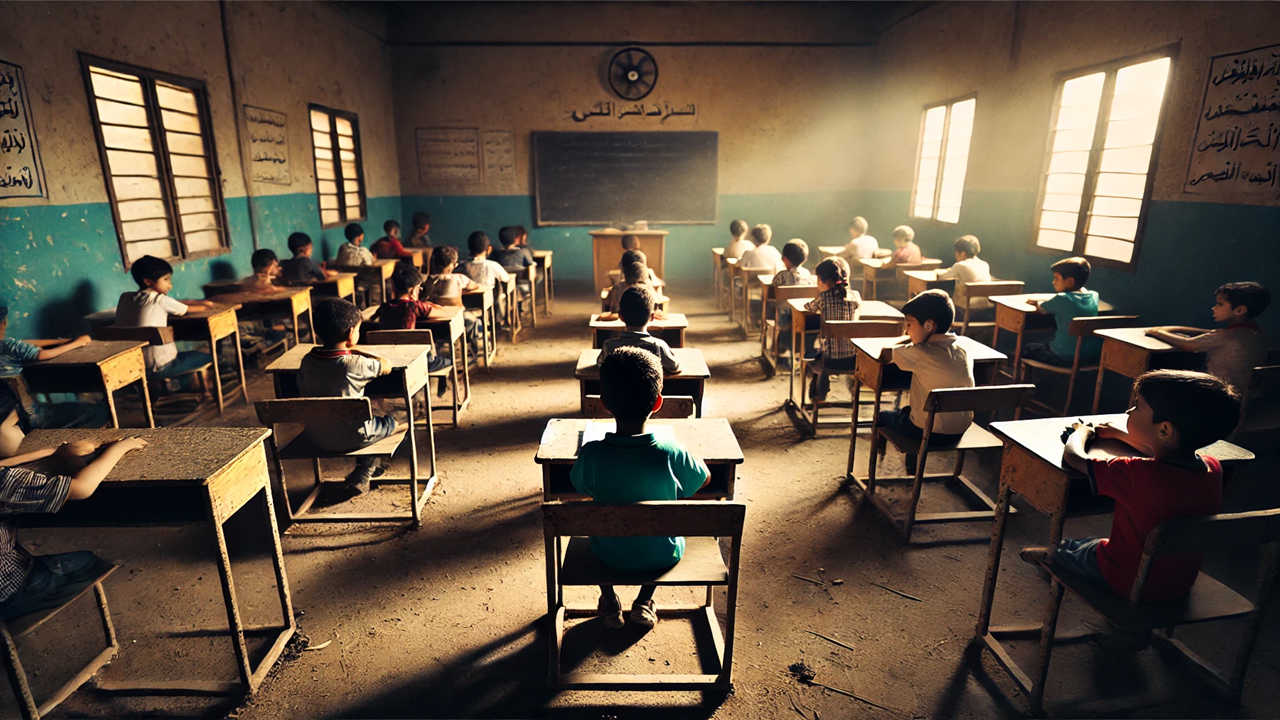Iraq's Path to Human Capital Recovery: Opportunities Amidst Challenges
Iraq is facing a critical human capital crisis, exacerbated by decades of conflict and economic instability. According to a World Bank report, Iraq ranks low in human capital outcomes, with severe gaps in education and employment, particularly among its youth and women. However, the country's young population presents an opportunity to drive economic growth if the government invests in education, job creation, and health reforms.

Iraq's human capital has been in a fragile state for decades, and despite numerous challenges, the country now has a unique opportunity to recover and grow. A comprehensive report titled "Iraq Human Capital Review, A Roadmap to Human Capital Recovery in Iraq" published by the World Bank in September 2024 sheds light on these challenges and outlines a roadmap for a better future. With a clear focus on education, health, employment, and social protection, Iraq is presented with a pivotal moment to invest in its people, especially its youth, and turn its demographic strengths into an economic advantage.
Human Capital Crisis: The Current State
According to the 2021 World Bank Human Capital Index (HCI), a child born in Iraq just before the COVID-19 pandemic can expect to achieve only 41% of their full potential productivity by adulthood. This is significantly lower than Iraq's regional peers in the Middle East and North Africa (MENA) region, which averages 57%. Several factors have contributed to Iraq's human capital deficit, including ongoing conflict, economic instability, and weak governance. Years of violence, political fragility, and poor infrastructure have severely impacted essential sectors like education and health.
Conflict and Displacement: Iraq has been engulfed in wars and violent conflict for decades, including the war against ISIS from 2014 to 2017, which displaced millions of Iraqis. This constant instability has disrupted human capital accumulation and strained public service delivery systems, making it difficult for many Iraqis to access basic education and healthcare.
Economic Instability: Iraq's heavy reliance on oil revenues and its unstable political institutions have created additional barriers to long-term investment in human capital. The volatility of oil prices further exacerbates the country's economic fragility, crowding out public investment in essential sectors like education and healthcare.
COVID-19's Impact: A Lost Generation?
The COVID-19 pandemic has had a profound impact on Iraq's human capital development. School closures, healthcare disruptions, and a worsening economic situation have had far-reaching consequences. The World Bank estimates that the pandemic's disruptions could lead to a loss of up to $63 billion in future earnings for Iraq’s youth due to school closures. This potential setback represents a generation of lost human capital unless urgent reforms are implemented.
Education and Employment: A Youth Struggle
Iraq's youth, who make up a significant portion of the population, face immense challenges. With youth unemployment standing at 36% and 37% of young people neither in education, employment, nor training (NEET), Iraq is on the brink of a human capital crisis.
Education Gaps: On average, Iraqi children can expect to complete only 6.9 years of schooling, and after accounting for the quality of learning, this number drops to just 4.0 years. This is well below the regional average. Early childhood education is also lacking, with only 11% of children participating in early education programs. Gender disparities further compound the issue, with young women particularly disadvantaged in terms of both educational and employment opportunities.
Low Female Labor Force Participation: In 2021, only 10.6% of working-age women were active in the labor market, compared to 68% of men. Social and cultural norms, combined with the lack of job opportunities, continue to marginalize women, leaving a vast potential workforce untapped.
Opportunities in Demographics: A Window for Change
Despite these challenges, Iraq has an opportunity to leverage its youthful population, provided the right investments are made. The report identifies Iraq’s young and growing population as a potential "demographic dividend"—a window during which the country can harness the economic benefits of a large working-age population.
For this to happen, Iraq must improve education access, especially in secondary education, and stimulate job creation. By creating more jobs, particularly for women and youth, and expanding family planning services, Iraq can turn its demographic advantage into sustainable economic growth.
Path to Recovery: Reform Imperatives
The report outlines three major reform priorities for Iraq,
Strengthening Governance and Accountability: Iraq’s long-term success depends on building an environment where governance is transparent, and accountability is strengthened. This includes ensuring the continuity of reforms across successive governments and involving various ministries and sectors in cross-coordination efforts.
Closing Service Delivery Gaps: There are significant gaps in healthcare and education service delivery in Iraq, and improving these sectors will be crucial for human capital development. Addressing infrastructure issues, particularly in rural areas, and ensuring equitable access to quality education and healthcare are key steps.
Harnessing the Demographic Dividend: Investments in human capital, particularly in secondary education and vocational training, coupled with private-sector job creation, will help Iraq maximize the potential of its growing young population.
A Roadmap for the Future
The Iraq Human Capital Review emphasizes the urgency of addressing these challenges while offering hope that Iraq can capitalize on its youthful demographic if it undertakes immediate and sustained reforms. By addressing governance, improving service delivery, and investing in human capital, Iraq can turn its current challenges into opportunities for growth.
- FIRST PUBLISHED IN:
- Devdiscourse
ALSO READ
UN Report Calls for Justice System Reforms and Protection of Civil Liberties in South Sudan
Streamlining Governance: The Four-Pronged Approach
Remembering Vajpayee: Icon of Good Governance
AfDB Approves €30.5M Loan to Boost Côte d’Ivoire’s Economic Growth and Governance
Andhra Pradesh's AI Leap: Transforming Governance with Technology










